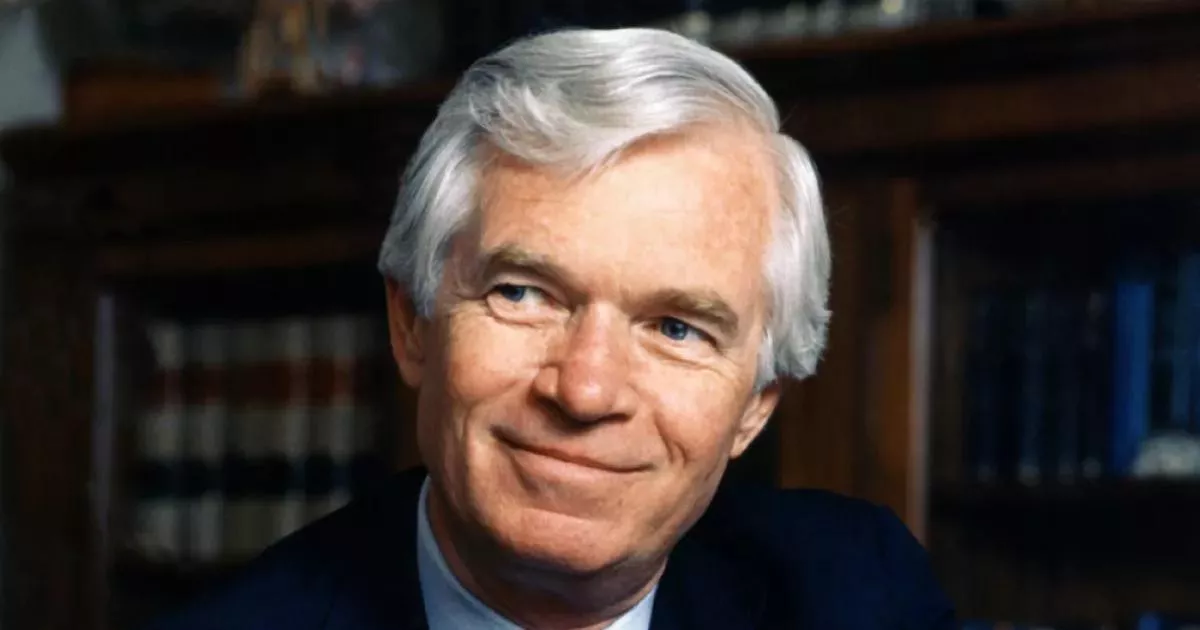Discover the career path of Thad Cochran, from the first major opportunity to industry-changing achievements.
William Thad Cochran was an American attorney and politician who represented Mississippi in the U.S. Senate from 1978 to 2018. As a Republican, he served in the U.S. House of Representatives before his Senate tenure, from 1973 to 1978. He was a prominent figure in Mississippi politics for over four decades.
1968: Chairman of Citizens for Nixon-Agnew
In 1968, Thad Cochran was recruited by Lamar Alexander to serve as chairman of Citizens for Nixon-Agnew in Mississippi.
1972: Elected to Congress
In 1972, Thad Cochran was elected to Congress as a Republican, representing Mississippi's 4th congressional district. He defeated Democratic state senator Ellis B. Bodron.
1972: Elected to U.S. House of Representatives
In 1972, Thad Cochran was elected to the U.S. House of Representatives, representing Jackson and portions of southwest Mississippi.
1973: Elected to U.S. House of Representatives
In 1973, Thad Cochran was elected to the U.S. House of Representatives, representing Mississippi.
1974: Won Re-election to Congress
In the 1974 elections, Thad Cochran won in a landslide victory with 70.2 percent of the vote, winning every county besides black-majority Claiborne and Jefferson.
1976: Won Reelection to Congress
In 1976, Thad Cochran won reelection to Congress with 76% of the vote.
1978: Elected as Senator for Mississippi
In 1978, Thad Cochran was elected as a United States Senator for Mississippi, marking a significant milestone in his political career.
1978: Elected to the U.S. Senate
In 1978, Thad Cochran was elected to the U.S. Senate, becoming the first Republican to win a statewide election in Mississippi in a century. He defeated Democrat Maurice Dantin and Independent Charles Evers.
1978: Won U.S. Senate Election
In 1978, Thad Cochran won a three-way race for U.S. Senate, becoming the first Republican to win a U.S. Senate election in Mississippi since Reconstruction.
April 1981: Cosponsored Bipartisan Experiment
In April 1981, Thad Cochran was one of eight senators to cosponsor a bipartisan six-year experiment in care at home for the elderly and disabled, as an alternative to expensive hospitals and nursing facilities.
1983: Voted for Martin Luther King Jr. Day Holiday
In 1983, Cochran, a Republican senator, voted for the act to make the birthday of Martin Luther King Jr. a legal public holiday.
1984: Re-elected to the Senate
In 1984, Thad Cochran was re-elected to the Senate, defeating Democratic governor William Winter by a significant margin.
1985: Vice Chairman of the Senate Republican Conference
In 1985, Thad Cochran became the Vice Chairman of the Senate Republican Conference.
1990: Re-elected to the Senate Unopposed
In 1990, Thad Cochran was re-elected to the Senate completely unopposed, demonstrating his strong support in Mississippi.
June 1991: Introduced Legislation for Indian Tribe Recognition
In June 1991, Thad Cochran introduced legislation to establish a commission to oversee recognition of Indian tribes and speed the tribal recognition process.
1991: Chairman of the Senate Republican Conference
In 1991, Thad Cochran became the Chairman of the Senate Republican Conference.
June 1996: Ran for Senate Majority Leader
In June 1996, Thad Cochran ran for the post of Senate Majority Leader but lost to Trent Lott.
1996: Re-elected to the Senate
In 1996, Thad Cochran was re-elected to the Senate, garnering 71 percent of the vote against Democratic nominee Bootie Hunt.
1996: End of Term as Chairman of the Senate Republican Conference
In 1996, Thad Cochran's term as Chairman of the Senate Republican Conference ended.
2002: Re-elected to the Senate
In 2002, Thad Cochran was re-elected to the Senate, facing only Reform Party candidate Shawn O'Hara.
2003: Chairman of the Senate Agriculture Committee
In 2003, Thad Cochran became the chairman of the Senate Agriculture Committee.
2005: Chairman of the Senate Appropriations Committee
In 2005, Thad Cochran became the chairman of the Senate Appropriations Committee.
2005: Voted Against Detainee Treatment Act
In 2005, Thad Cochran was one of nine senators who voted against the Detainee Treatment Act of 2005, which aimed to prohibit "inhumane treatment of prisoners, including prisoners at Guantanamo Bay".
April 2006: Named One of "America's 10 Best Senators"
In April 2006, Thad Cochran was selected by Time as one of "America's 10 Best Senators" and was dubbed "The Quiet Persuader" for his role in securing money for the Gulf Coast after Hurricane Katrina.
July 18, 2006: Voted for Stem Cell Research Enhancement Act
On July 18, 2006, Cochran, along with 19 other Republican senators, voted for the Stem Cell Research Enhancement Act, which sought to lift restrictions on federal funding for stem cell research.
2007: Voted to Repeal Gun Regulation for Individuals with Mental Health Diagnosis
In 2007, Cochran voted to repeal a regulation that made it illegal for certain individuals with specific mental health diagnoses to purchase guns, arguing it infringed upon Second Amendment rights.
2007: End of First Term as Chairman of the Senate Appropriations Committee
In 2007, Thad Cochran's first term as chairman of the Senate Appropriations Committee ended.
2008: Re-elected to the Senate
In 2008, Thad Cochran was re-elected to the Senate, defeating State Representative Erik R. Fleming amidst widespread Democratic gains.
December 2009: Voted Against Patient Protection and Affordable Care Act
In December 2009, Cochran voted against the Patient Protection and Affordable Care Act.
April 2010: Topped List of Congressional Earmarks
In April 2010, Thad Cochran reportedly topped the Citizens Against Government Waste's list of congressional earmarks, having requested $490 million in earmarks.
2010: Voted Against Health Care and Education Reconciliation Act
In 2010, Cochran voted against the Health Care and Education Reconciliation Act.
2012: Received Contributions From Oil, Gas, and Coal Interests
Since 2012, Cochran had received more than $290,000 from oil, gas and coal interests.
April 2013: Voted Against Expanded Background Checks for Gun Buyers
In April 2013, Thad Cochran was among forty-six senators who voted against a bill that would have expanded background checks for gun buyers.
2014: Primary Challenge from Chris McDaniel
In 2014, Thad Cochran faced a primary challenge from Tea Party-supported candidate Chris McDaniel, making the election more competitive than initially expected.
2014: NRA Endorsement
In 2014, the NRA endorsed Cochran in the election.
2015: Chairman of the Senate Appropriations Committee Again
In 2015, Thad Cochran became the chairman of the Senate Appropriations Committee for a second time.
2017: Signed Letter Urging Withdrawal from Paris Agreement
In 2017, Cochran was among 22 senators who signed a letter to President Donald Trump, urging the United States to withdraw from the Paris Agreement.
January 2018: Signed Letter Requesting Preservation of NAFTA
In January 2018, Cochran was among thirty-six Republican senators who signed a letter to President Trump, requesting he preserve the North American Free Trade Agreement by modernizing it.
March 5, 2018: Announced Retirement from the Senate
On March 5, 2018, Thad Cochran announced that he would retire from the Senate due to ongoing health challenges.
April 1, 2018: Cochran Left Office
On April 1, 2018, Thad Cochran officially left office, marking the end of his tenure in the Senate.
April 2018: Resigned from the Senate
In April 2018, Thad Cochran resigned from the Senate due to health issues, marking the end of his long tenure.
2018: End of Second Term as Chairman of the Senate Appropriations Committee
In 2018, Thad Cochran's second term as chairman of the Senate Appropriations Committee ended.
2018: End of Senate Term
In 2018, Thad Cochran's service as a U.S. Senator for Mississippi came to an end, concluding a lengthy and impactful career in the Senate.
Mentioned in this timeline

Donald John Trump is an American politician media personality and...

Martin Luther King Jr was a pivotal leader in the...
The Affordable Care Act ACA also known as Obamacare is...

Martin Luther a German priest theologian and author was a...

Hurricane Katrina a catastrophic tropical cyclone in late August caused...

Jackson the capital and most populous city in Mississippi experienced...
Trending

35 minutes ago Selena Gomez's Spiced-Plum Manicure and TikTok Clone Theory Spark Buzz

36 minutes ago Kit Harington and Sophie Turner Gag After On-Screen Kiss in New Movie

36 minutes ago Trump administration updates, Iran nuclear efforts, and White House controversies unfold.

36 minutes ago Dario Amodei Highlights India's Central Role in Shaping AI's Future at AI Summit.

2 hours ago Yoon Suk Yeol, South Korean ex-president, receives life sentence for insurrection and martial law.

4 hours ago Maya Hawke and Christian Lee Hutson celebrated wedding with Stranger Things cast present.
Popular

Jesse Jackson is an American civil rights activist politician and...
Randall Adam Fine is an American politician a Republican who...

Pam Bondi is an American attorney lobbyist and politician currently...

Barack Obama the th U S President - was the...

Martin Luther King Jr was a pivotal leader in the...

Ken Paxton is an American politician and lawyer serving as...
